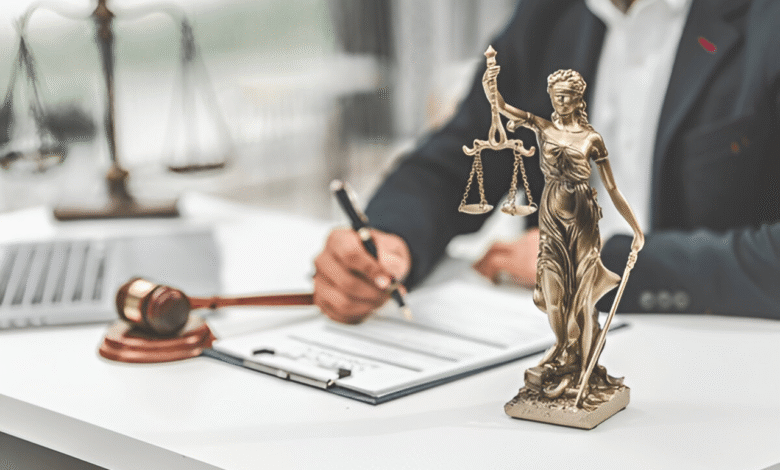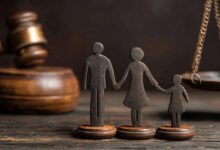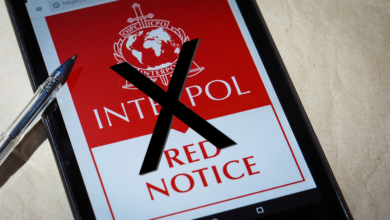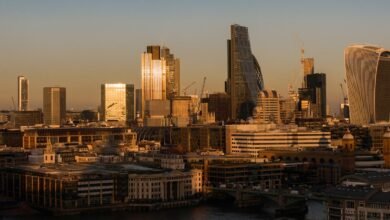How to Protect Civil Liberties in NSW, Australia
Protect civil liberties in NSW with expert tips on privacy rights, legal recourse, and defending freedoms against government overreach.

Protecting civil liberties in NSW is essential for maintaining a fair and democratic society where individuals can exercise their fundamental rights without undue interference. Civil liberties including freedom of speech, privacy, and the right to peaceful assembly are protected under various Australian laws, but they face ongoing challenges from evolving legislation, surveillance technologies, and law enforcement practices. In New South Wales, residents must stay informed about their rights and take proactive steps to safeguard them against potential overreach by authorities or corporations.
As one of Australia’s most populous states, NSW balances security measures with personal freedoms, often leading to debates over laws that may restrict civil liberties. Recent policies, such as expanded police powers and anti-protest regulations, highlight the need for vigilance in defending democratic values. Whether through legal action, public advocacy, or digital privacy measures, individuals and organizations play a crucial role in ensuring that civil liberties in NSW remain strong and enforceable. This guide explores practical strategies to uphold these rights in an ever-changing legal landscape.
How to Protect Civil Liberties in NSW, Australia
Understanding Civil Liberties in NSW
Civil liberties in NSW are protected under various Australian laws, including the Australian Constitution, common law principles, and international treaties like the International Covenant on Civil and Political Rights (ICCPR). While Australia lacks a national bill of rights, NSW has specific protections under state legislation, such as the NSW Anti-Discrimination Act 1977 and the Privacy and Personal Information Protection Act 1998. These laws safeguard freedoms like freedom of expression, right to privacy, and protection from discrimination. However, unlike some countries with explicit constitutional rights, many civil liberties in Australia rely on judicial interpretation and statutory laws.
Freedom of Speech and Assembly
Freedom of speech is a fundamental civil liberty, but it is not absolute in NSW. While Australians enjoy broad free expression rights, certain restrictions apply, such as laws against hate speech, defamation, and incitement to violence. The Crimes Act 1900 (NSW) and Anti-Discrimination Act impose penalties for speech that threatens public order or discriminates against protected groups. Similarly, the right to peaceful assembly is protected but regulated. Recent anti-protest laws. If participating in protests, knowing your rights such as the need for permits and lawful conduct can prevent unnecessary legal trouble.
Protecting Privacy in the Digital Age
With increasing government surveillance and corporate data collection, privacy rights are under constant threat. In NSW, the Privacy and Personal Information Protection Act 1998 regulates how government agencies handle personal data, while the Surveillance Devices Act 2007 restricts unauthorized recording and tracking. However, laws like the Telecommunications and Other Legislation Amendment (Assistance and Access) Act 2018 grant authorities broad powers to access encrypted communications. To safeguard privacy, individuals should use encrypted messaging apps, enable two-factor authentication, and be cautious about sharing personal data online.
Challenging Unlawful Police and Government Actions
Police and government agencies must operate within legal boundaries, but instances of overreach do occur. In NSW, individuals have the right to challenge unlawful arrests, excessive force, or unjust searches under the Law Enforcement (Powers and Responsibilities) Act 2002. If rights are violated, filing complaints with the Law Enforcement Conduct Commission (LECC) or seeking legal redress through courts can hold authorities accountable. Knowing when police can legally stop, search, or detain individuals is crucial. Citizens have the right to ask for an officer’s identification and the legal basis for their actions.
Supporting Civil Liberties Through Advocacy and Education
Protecting civil liberties requires collective effort. Supporting human rights organizations, such as the Australian Civil Liberties Union (ACLU) or Amnesty International Australia, helps amplify advocacy for policy reforms. Engaging with political representatives, signing petitions, and participating in public consultations can influence laws that impact freedoms. Education is equally vital. Schools, universities, and community groups should promote civic literacy, teaching individuals about their rights and responsibilities.
Legal Recourse and Human Rights Complaints
Filing Complaints with NCAT
The NSW Civil and Administrative Tribunal (NCAT) handles disputes over discrimination, tenancy, and privacy violations. Claims must be filed within strict time limits (usually 12 months for discrimination cases). NCAT offers a low-cost, accessible alternative to court for resolving civil liberty violations.
Reporting to the Australian Human Rights Commission
For breaches of federal Anti-discrimination law or human rights treaties, individuals can lodge complaints with the AHRC. While the AHRC can’t impose penalties, it facilitates conciliation and may recommend policy changes. Cases involving racial, gender, or disability discrimination often fall under its jurisdiction.
Challenging Police Misconduct via LECC
The Law Enforcement Conduct Commission (LECC) investigates police overreach, unlawful arrests, or excessive force in NSW. Complaints can be submitted anonymously, and the LECC has powers to compel testimony and recommend criminal charges. Evidence like bodycam footage or witness statements strengthens cases.
Seeking Compensation Through Civil Lawsuits
If rights violations cause financial or emotional harm, victims may sue for damages under tort law (e.g., false imprisonment). Legal Aid NSW or pro bono lawyers can assist, but strict statutes of limitation apply (e.g., 3 years for personal injury claims).
Advocacy via Human Rights Organizations
Groups like the NSW Council for Civil Liberties or Amnesty International provide legal support, public campaigns, and policy lobbying. They also publish rights guides and track legislation threatening freedoms (e.g., expanded surveillance laws).
International Human Rights Petitions
For severe violations unresolved domestically, individuals can appeal to UN committees (e.g., Human Rights Committee) under treaties like the ICCPR. Though non-binding, these petitions pressure governments to reform laws or compensate victims.
Using FOI Requests for Transparency
The Government Information (Public Access) Act 2009 lets citizens request police records, surveillance policies, or detention reports. Denied requests can be appealed to the NSW Information Commissioner—a key tool for exposing systemic abuses.
Whistleblower Protections
NSW’s Public Interest Disclosures Act 2022 shields whistleblowers exposing corruption or rights violations in government. Protections include confidentiality and immunity from lawsuits, but legal advice is critical before disclosure.
Read More: How the Criminal Justice System Works in the UK: A Legal Guide
Conclusion
Protecting civil liberties in NSW requires constant vigilance and active participation from all members of society. While legal frameworks exist to safeguard fundamental rights, these protections can be eroded by overreaching laws, surveillance practices, or shifting political priorities. Individuals must stay informed about their rights, challenge unjust policies through legal and democratic channels, and support organizations dedicated to defending freedoms. By fostering a culture of accountability and transparency, NSW can maintain the delicate balance between security and personal liberty that defines a healthy democracy.
Ultimately, the strength of civil liberties in NSW depends on the collective effort of citizens, advocates, and policymakers. Whether through digital privacy measures, peaceful protest, or engagement with human rights institutions, every action contributes to preserving these essential freedoms. As technology and legislation continue to evolve, so too must our commitment to upholding the principles of justice, equality, and individual autonomy that form the foundation of Australian democracy.
FAQs
What are civil liberties in NSW?
Civil liberties in NSW include fundamental rights like freedom of speech, privacy, peaceful protest, and fair treatment under the law, protected by Australian and state legislation.
Can the government restrict civil liberties in NSW?
Yes, but only under strict legal justification such as public safety and any restrictions must be reasonable, proportionate, and non-discriminatory under human rights principles.
How can I challenge a violation of my civil liberties?
You can file complaints with the NSW Civil and Administrative Tribunal (NCAT), the Australian Human Rights Commission, or seek legal action with help from Legal Aid NSW.
Are protests legally protected in NSW?
Yes, but permits may be required for large gatherings, and recent anti-protest laws impose harsh penalties for disruptive demonstrations.
What’s the best way to protect my digital privacy?
Use end-to-end encrypted apps, enable strong security settings, and stay informed about NSW privacy laws to safeguard against unlawful surveillance.











